Ruth Bader Ginsburg said it herself: ‘There’s nothing in the Constitution that says the President stops being President in his last year’

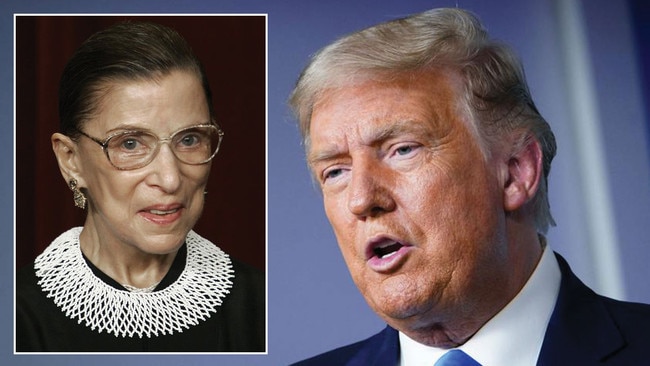
To repeat, I believe them entirely, irrespective of whether they have evidence to substantiate their allegations.
I believe the nominee regularly beats her underpaid Latino maid, I believe she pulled the pigtails of her African-American fellow students in kindergarten, I believe she lied and cheated her way through law school.
I believe she frequently has sexual liaisons with Republican senators and Russian secret agents, I believe she is a papist who wants to impose canon law on the populace, I believe she has a fetish for automatic weapons, and I believe she has a secret collection of golliwogs. In short, I believe every detrimental comment concerning her fitness for office, no matter how ludicrous, because to entertain even the slightest scepticism automatically renders one a Trump-enabler.
The passing of any revered figure is a sad occasion, but Ginsburg, 87, had lived a long and fulfilling life. Like many of her fellow judges, she revelled in her role as politician and the power that came with it. If anything she welcomed her personality cult, and last year even used her official chambers to host actress Jennifer Lopez.
Ginsburg’s antipathy for Trump
Her love of being feted meant her remaining on the bench long after it was time to retire. Many would fiercely dispute this, but the images last week of jurist junkies gathering at the court and holding a candlelight vigil as they wept are testament to that.
Her antipathy for Trump was such she compromised the court with her comments during the 2016 election campaign. “ I can’t imagine what the country would be with Donald Trump as our president,” she told the New York Times in July that year. “For the court, it could be — I don’t even want to contemplate that.”
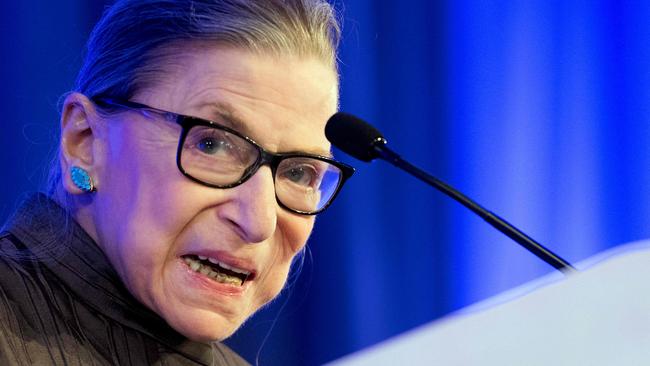
That same week she told CNN “He says whatever comes into his head at the moment. He really has an ego. … How has he gotten away with not turning over his tax returns?” She later conceded her remarks were “ill-advised”.
Imagine the reaction had one of her conservative male colleagues made similar remarks of Democratic presidential nominee Hillary Clinton. He would be fortunate not to be impeached.
What promises to be an already tumultuous presidential election has been exacerbated by Ginsburg’s demise. Days before her death, she reportedly dictated to her granddaughter Clara Spera that her “most fervent wish” was that she not be replaced until a new president was installed.
Replacement was not her call
As she would have known, this was not her call. Plus, the prospect of having successfully nominated three candidates for America’s highest court in only one term would electrify any president. Only hours after Ginsberg’s death, Republican and Senate Judiciary Committee chairman Lindsey Graham announced that a vote would proceed.
This was the same man who in 2016 stymied President Barack Obama’s nomination of Merrick Garland to the court following the death of associate justice Antonin Scalia, saying “The American people should have a voice in the selection of their next Supreme Court justice”.
Doing so at this late stage might flout convention but Graham can point to no less an authority than Ginsberg herself, who in 2016 called out the Senate for refusing to action the Garland nomination “There’s nothing in the Constitution that says the President stops being President in his last year,” she said.
Similarly, just two days after Scalia’s death, Clinton told a cheering audience there should be no impediment to Garland’s nomination. “Let me just make one point: Barack Obama is President of the United States until January 20, 2017”, she said. “That is a fact, my friends, whether the Republicans like it or not.” But last week she protested that the Republicans’ decision to proceed with confirming a nominee was a “very unfortunate display of partisan power to push through whoever the president nominates”.
Remember Merrick Garland
Then Vice-President and now Democratic presidential contender Joe Biden was at Obama’s side in 2016 when the latter announced he would nominate Garland. When Republicans responded that they would not hold hearings for the nominee, Biden was outraged.
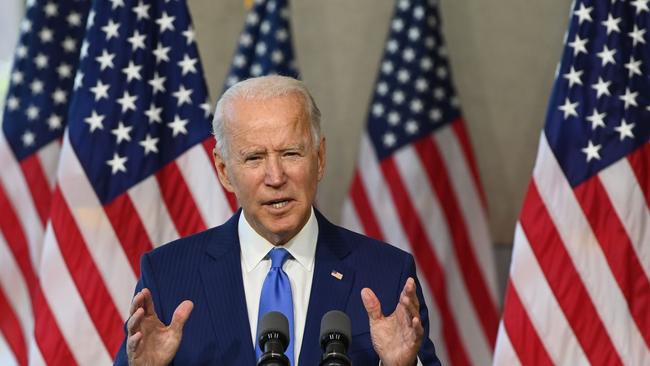
“Nobody is suggesting individual senators have to vote yes on any particular presidential nominee, he said. “Voting no is always an option and it is their option. But saying nothing, seeing nothing, reading nothing, hearing nothing and deciding in advance simply to turn your back before the President even names a nominee is not an option the constitution leaves open. It’s a plain abdication of the Senate’s solemn constitutional duty. It’s an abdication, quite frankly, that has never occurred before in our history.”
Yet this week Biden was furious about the prospect of an expedited Senate confirmation vote. “I believe voters will make it clear — they will not stand for this abuse of power, this constitutional abuse,” he fulminated, telling Republican senators to “follow” their “conscience.” Talk about rich.
The leftist media had also demanded in 2016 that Garland’s nomination proceed to the Senate floor. “Not to vote at all is an enormous insult and grave disservice to millions of Americans awaiting justice,” the NYT editorialised.
Schadenfreude hard to resist
This week the same paper was horrified at the prospect of the court once again having nine justices ready to dispense justice. “The Supreme Court, with another Trump appointee, could stand as a conservative firewall against the expressed will of a majority of Americans on a range of crucial issues,” it protested.
It is difficult not to feel schadenfreude.
For years the progressive commentariat has supported judicial activism and championed the right of unelected justices to usurp the legislature and assume the role of politician. But it never contemplated the possibility that one day conservatives would outnumber the activists.
‘She was so close’
And if this Monday’s episode of The Drum was an example, you should not expect the ABC to provide an objective coverage of the nomination hearing. Wearing a collar in honour of Ginsburg, host Julia Baird lamented not only her passing but the timing of her death. “Five weeks and three days,” she sighed wistfully. “That’s how long she missed the election … she was so close,” she said, reflecting on Ginsburg’s desire determination not to retire before Trump’s presidency ended.
Did you notice @bairdjulia's subtle tribute to Ruth Bader Ginsburg in the show tonight?
— ABC The Drum (@ABCthedrum) September 21, 2020
There's an entire history behind the 'RBG collars'. #TheDrum pic.twitter.com/MYzzAMA7Ir
There was no mention of Ginsburg’s fitness to remain on the bench following her outburst in 2016. The panel canvassed judicial bias and conflict of interest, but that concerned a hypothetical in which the court had to determine the result of a disputed presidential election this year. In that case, said panellist and Climate Council board member Sam Mostyn, the new associate justice would be expected to recuse herself, “having been appointed by President Trump”.
“There’s a precedent for that with Chief Justice Rehnquist who did take himself off a case where he believed he couldn’t opine without conflict because of the President who appointed him,” said Mostyn.
This is both misleading and inaccurate. Given that institution is the highest appellate body in the land and a justice’s withdrawal could result in a judicial deadlock, the bar for recusal is understandably high. That a justice was nominated by a President who is a party to proceedings is in itself unlikely to warrant recusal.
Feeling so bleak about the death of Ruth Bader Ginsburg... especially that the end of such a transformative, industrious and useful life should become the trigger for yet another schism in America. Already so many wrenching divisions ... 1/2
— Annabel Crabb (@annabelcrabb) September 19, 2020
... loading a live dispute over a Sup Ct vacancy, with all its reeking ancillary baggage, into an already toxic election environment is just horrifying.
— Annabel Crabb (@annabelcrabb) September 19, 2020
Although he did not specify the reasons at the time, it was likely associate justice (as he was then) William Rehnquist withdrew from the case of United States v. Nixon (1974) because he had previously served in the Nixon Administration as assistant attorney-general and had worked alongside several people later named in Watergate.
Neither Mostyn nor anyone else on The Drum’s panel mentioned that Ginsburg did not recuse herself from high profile cases involving Trump when he became President, including the Trump v. Hawaii case (2018) that examined the legality of the White House executive order restricting travel from several high-risk countries. In a decision split 5/4, the court ruled Trump’s action was lawful. Guess who was among the dissenters?
In a further blow to Democrats’ hopes, Senator Mitt Romney – the sole Republican senator to vote for Trump’s conviction in his impeachment hearing this year – announced yesterday he would support holding a Senate confirmation vote for the nominee. It looks increasingly likely that Trump will have the numbers to push this through only days before the election. This will infuriate his opponents, but, after all, he is still President. To paraphrase Ms Clinton “That is a fact, my friends, whether the Democrats like it or not.”
More Coverage
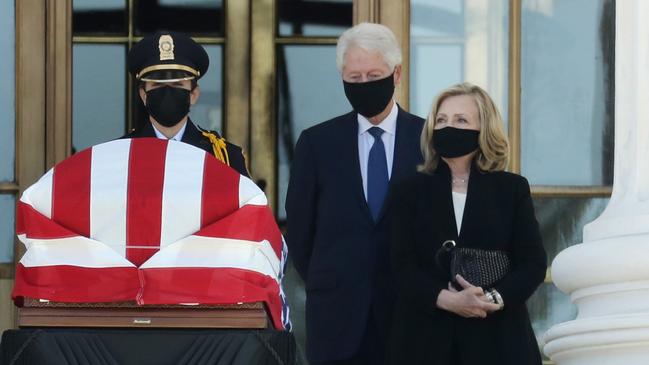

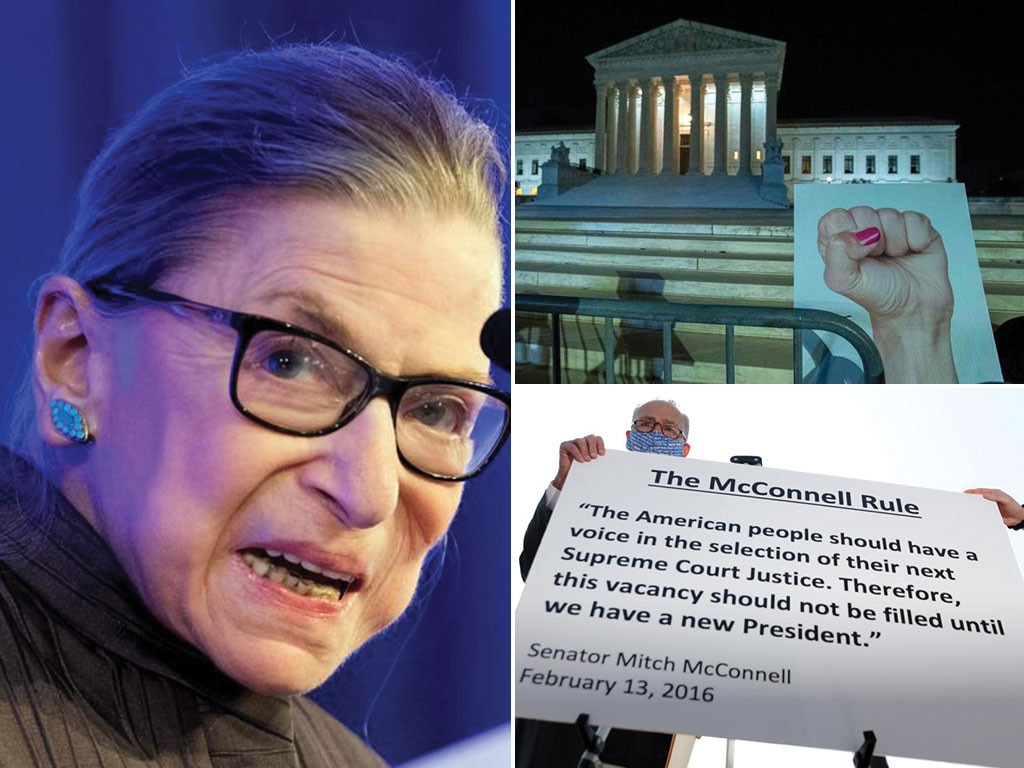


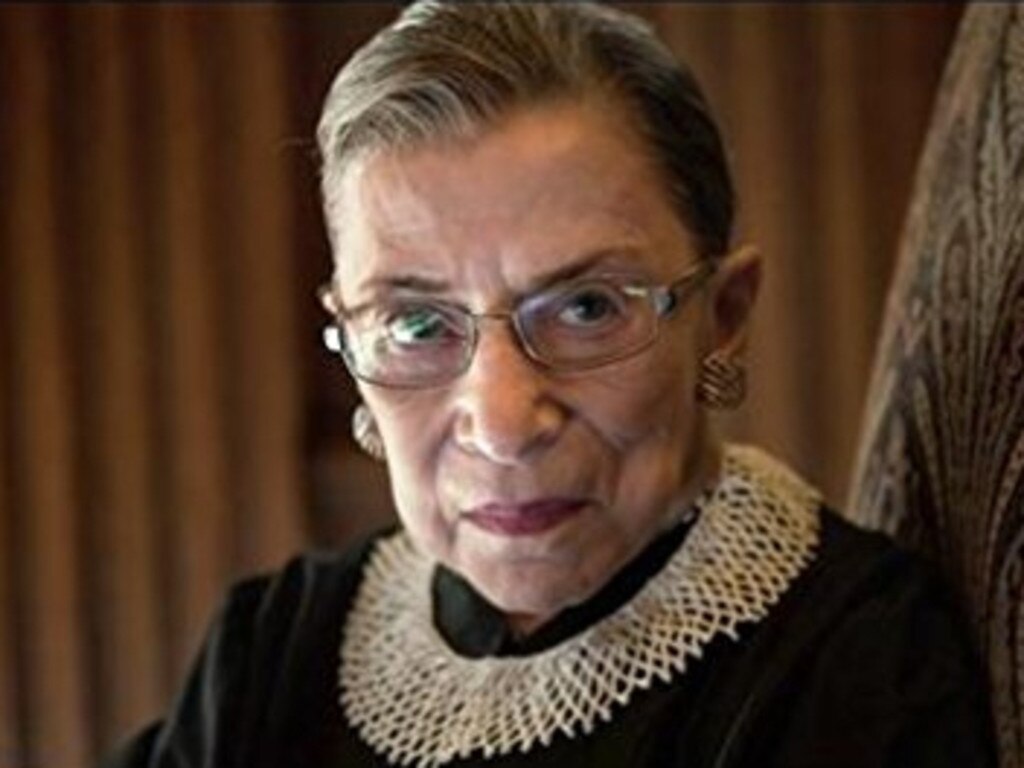


We do not yet know which woman US President Donald Trump will nominate to fill the vacancy in the Supreme Court following the death of associate justice Ruth Bader Ginsburg, but I just want to say one thing about whoever makes accusations against the nominee, and that is “I believe you”.